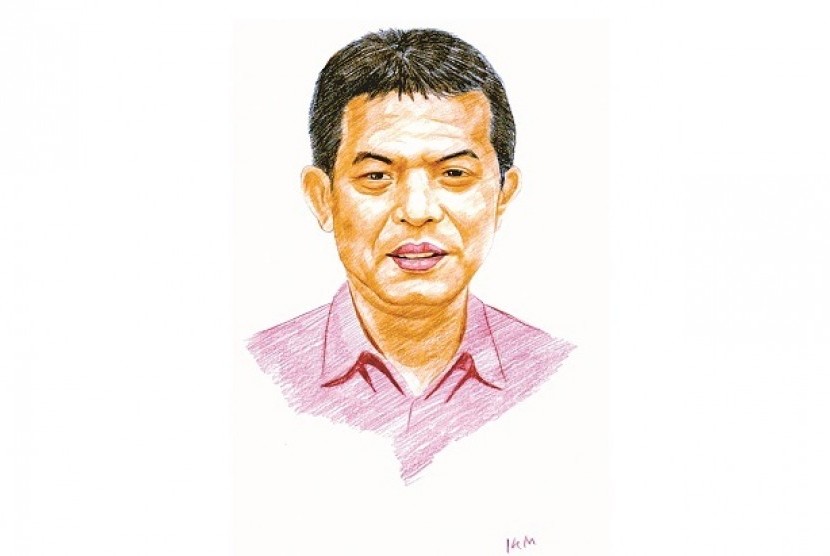By Ikhwanul Kiram Mashuri
These days could be said as one of exciting yet stressful days for parents who have children on their last year of elementary, junior and high school. Not only anxious for the national examination results and the chance to be accepted in the best school and college, they also had to think of the school fees. This last item was usually the most head-spinning.
Yes, although the government already had nine years free education program, but in practice could be a different case. To enrol your children to schools, especially the private ones, parents must spend a lot of money. There are building fee, school facilities, tuition, book fee, uniform fee, etc. These have not included the annual rise of school transportation fee.
Related to school fees, let me quote Egypt’s education figure. His name was Toha Hussein. He said, “Education is the same as the air that we breathe and water that we drink.” Toha Hussein was not a politician who was good at selling campaign jargons. He was a blind person since he was three years old because of malpractice.
With his blindness he stepped on intellectual and academic world until he got his doctor’s degree. On his 61st years old, he was appointed by King Farouk as Egypt’s Minister of Education (1950). He directly waived school fees. Since then, education in Egypt since kindergarten to college was free until today.
Heavy life struggle of Toha Hussein maybe was the reason that made his decision. He is, someone from poor family could succeed on his education as long as was given an opportunity.
Toha Hussein was coming from poor family. Born (November 14, 1889) and grew up in a small town in Minya Province, his blindness did not stop him from getting college scholarship in Al-Azhar University, Cairo. Here, he learnt about religion, Arabic literatures, and history. After that, he also got a scholarship from Montpellier University, France.
When he was studied in Montpellier, he needed someone to help him. He was met to a French student who also was volunteering to blind students. Her name was Suzanne Bressau. It was Suzanne who read school books as well as taught him to speak French more fluently.
He also wrote a thesis to earn his Master’s degree in history and Arab literature. Helped by Suzanne who wrote what he dictated. Both then fell in love, married and got two children. After he earned Doctoral’s degree from Sorborne University, Toha Hussein and his small family moved back to Egypt.
He immediately engaged in intellectual and academics struggle. He once was a history and literature professor in Kairo University and chief editors of several scientific magazines.
He also wrote many books, essays, and novels. His best seller books were Al-Ayyam (1932) and Adib (1942). Al-Ayyam told about his daily life’s highs and lows as a blind man, including when he studied in college and shared romantic stories with a French girl. While, Adib told about shock culture of an Al-Azhar graduated young Egyptian man who then studied in secular French.
But, some of his books also ignited controversies. Among others, when he wrote about the Arabs in the era of Prophet Muhammad PBUH and after did not like to write. They were speaker societies from generation to generation. Hence, Qur’an could be inauthentic. There could be reduction and addition here and there.
Immediately his statement raised anger and hard critics, especially Al-Azhar ulamas. He was judged to have insulted Islam. His books were forbidden and his position as Kairo University professor was stripped although officially he has never been put into trial. Although Toha Hussein’s thoughts raised pro and cons, but everyone agreed about one thing. His role on educations.
When he was appointed as Egypt’s Minister of Education (1950), he immediately passed legislation about stated all citizens must earn free education as water and air. Since then, education in Egypt from kindergarten to university was free, majjanan, including books.
He also managed to pass legislation to subsidy papers. Because, he said, all products made of paper for the benefit of people’s intellectuality, such as newspaper, magazine and book. The free education legislation eventually was followed by Middle East countries.
Even more, some of Arab countries rich in oil and gas add more bonuses such as pocket money, transport allowance and holiday allowance. They seemed to understand well that education was the most priceless investment for the future generations. A country could be developed if the societies were well educated. Unfortunately, free education in our country was still limited to the political jargon and commodities.
On every election, all politicians raced promising free education if they were chosen. But, a promise was a promise. The society from year to year still sang the same sad song: cost of education in this country is expensive.
(Indira Amaranti)



